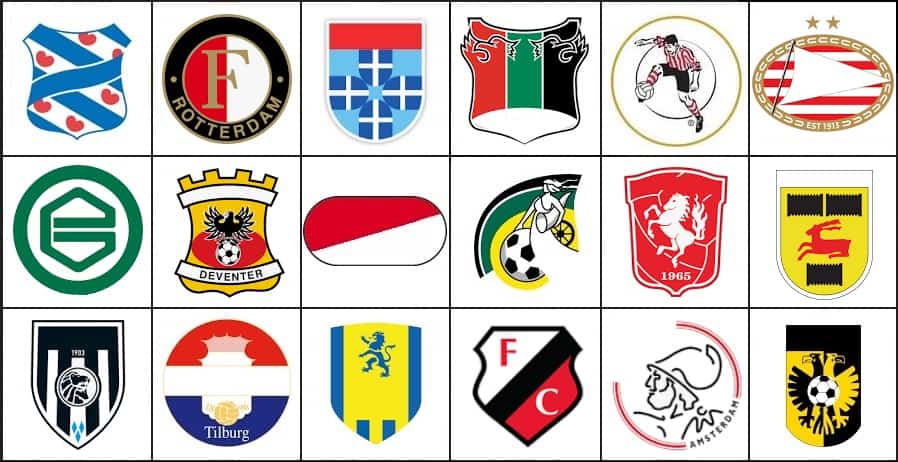The realm of sports often finds inspiration in the stories of ancient gods and heroes, and Dutch football is no exception. Football clubs worldwide draw from a rich tapestry of mythology, using these iconic figures to shape their identities and evoke a sense of grandeur, irrespective of their success on the field.
This practice has been embraced fervently in Dutch football, and its origins harken back to the sport's elite beginnings, reminiscent of another English import, cricket.
The Dutch football clubs established during this period captured the imagination of the intellectual elite, who saw the sport as fashionable and began weaving classical literature, particularly the narratives of ancient Greece and Rome, into the fabric of their clubs. Today, the echoes of these ancient tales continue to influence many facets of life, including the world of sports. Football, being one of the most beloved and popular sports, has also succumbed to the allure of antiquity and mythology.
In the Netherlands, this affinity for mythology is particularly evident in the names of football clubs. Take, for example, the Amsterdamsche Football Club Ajax, founded in March 1900, one of the most successful and renowned clubs globally. This club is unmistakably named after the Greek hero Ajax the Great, a character from Homer's epic, the Iliad. Ajax is celebrated as a formidable warrior who fought valiantly in the Trojan War, often mentioned in the same breath as his cousin, Achilles, as one of the greatest Greek warriors. Ajax, the football club, drew inspiration from his unconquerable spirit.
However, like the hero Ajax from antiquity, the club experienced moments of grief; in this case, it was the pain of not obtaining Achilles' magical shield. In the end, Ajax took his own life with the sword he acquired from Hector, the Trojan prince. Despite this tragic mythological reference, Ajax has managed to become the record 36-time winner of the Eredivisie, the top-flight Dutch league, and boasts four UEFA Champions League titles, among many other accomplishments. The club has witnessed the talents of legendary Dutch players, such as Johan Cruyff, Frank de Boer, Dennis Bergkamp, and Edwin van der Sar, gracing its ranks.
Achilles FC, founded in June 1929 and now known as Achilles '29, takes inspiration from Achilles, often hailed as the greatest warrior in Greek mythology, known for his remarkable strength and only mildly pronounced weakness. Currently competing in the sixth-tier Eerste Klasse, Achilles '29 is renowned for creating unexpected upsets in cup competitions. The phrase "Achilles' heel" is derived from the myth that an arrow ultimately brought down the hero to his heel.
Heracles Almelo, founded in May 1903, draws its name from Heracles, known as Hercules in Roman mythology. Heracles, the son of Zeus and Alcmene, is famous for his incredible strength and the completion of his 12 labours. Although Heracles Almelo claimed the Eredivisie title twice in the past (in 1926-27 and 1940-41), they have faced challenges in competing at the top level recently. The club recently experienced a setback, losing in the promotion/relegation playoffs and finding themselves in the Dutch second division, Eerste Divisie, for the first time in their history.
Sparta Rotterdam, established as a cricket club in April 1888 and holding the distinction of being the oldest football club in the Netherlands, adopted its name from the formidable Greek city-state, Sparta. Known for its powerful military prowess, Sparta's citizens, or Hoplites, formed a resilient force. Sparta Rotterdam has won six Eredivisie titles, the most recent being in the 1958-59 season, and is one of the four prominent clubs based in Rotterdam. The other three are SBV Excelsior (1902), Feyenoord (1908), and XerxesDZB, a club inspired by the Persian emperor Xerxes I, known for his invasion of Greece. XerxesDZB, initially founded as RFC Xerxes in 1904, shares a compelling rivalry with Sparta, contributing to the excitement of the Rotterdam derbies.
In Dutch football, mythology and antiquity provide a unique backdrop for the clubs, infusing them with a sense of grandeur and a connection to timeless tales of valour and strength. These names link modern-day football with the epic stories of the past, bridging the gap between the present and the revered traditions of the ancients.


